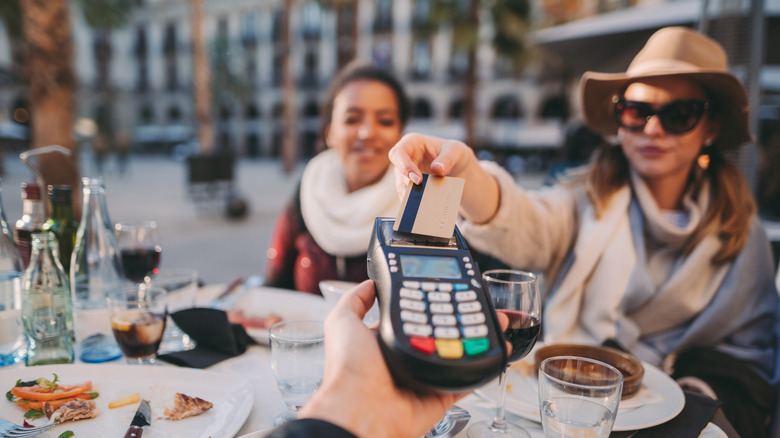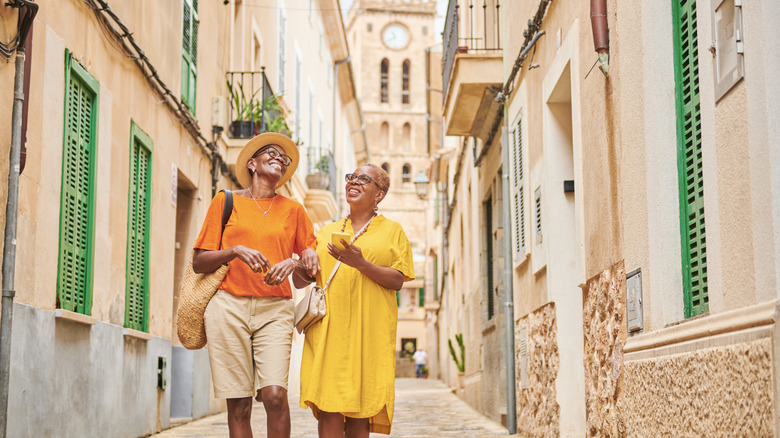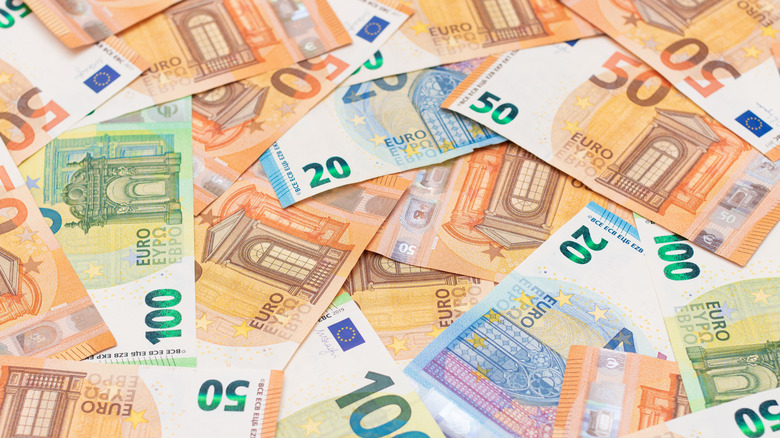This European Hand Gesture Means You're Overpaying, Per Rick Steves
Different countries have different languages — that also includes body language. Travel writer Rick Steves has made his way around Europe for years now and documented how travelers to different regions should be aware of different customs depending on where they are visiting. While a loose motion of the hand might mean next to nothing in America, in Europe, it can mean you are overpaying, according to a post on Rick Steves' Europe.
Steves noted that, if something is viewed as "expensive," it can be expressed by someone loosely shaking their hand while simultaneously sucking in air to indicate overpaying, almost acting as if they've just received a burn. Along with a few subtle gestures that might mean you are about to get scammed, Steves warns travelers to be aware of not only of different body and head movements that residents of the country are directing your way, but to also be careful of your own. A slight tilt of the head or the holding up of certain fingers might be an innocent move in the United States that comes with unforeseen consequences in Europe.
Ways to prevent overpay while traveling in Europe
You might be a frugal backpacker or a first-class jetsetter, but one thing you probably aren't is someone who likes to overpay. It happens to the best of us and is especially easy to do when you are in a foreign place. One of the quickest ways to spend more money than you intended is via currency exchange in European airports. Gamin Traveler pointed out that, in places like London or France, you might find yourself facing a bad exchange rate that ends up costing you between 5% and 10% when stacked up against a standard bank or ATM.
According to Steves, another method for overpaying involves visiting tourist traps in Europe that are a waste of money, particularly if you are paying the "tourist price" to get an admission ticket or book a spot. While a discount for visitors might seem enticing, it is important to double check legitimate website reviews and pricing to make sure you are not paying extra to get the same experience as a local or a traveler who paid the regular fee.
Cash is king when traveling in Europe
Even in a digital world where many financial transactions take place with credit cards or through online portals, having some cash on hand while traveling in Europe is always a good idea. While you do not want to be walking around with stacks of euros on your person, you'll want to have a fair amount to pay for food, transportation, and attractions, though be careful you avoid certain ATMs that can scam you in the process of using them.
One of the best parts of using cash is that you avoid foreign transaction fees. Lending Tree analyzed 165 credit cards linked to the 10 largest bank issuers and found that close to half of all credit cards came with an average fee of 2.61% for each foreign transaction. Those fees can add up over the course of your trip. Additionally, you do not have the ease and access of being able to tip employees and workers with a credit or debit card the way you would with cash, though, like Steves' advice on hand gestures and body language, brush up on tipping practices in Europe so you do not make a mistake during your visit.


